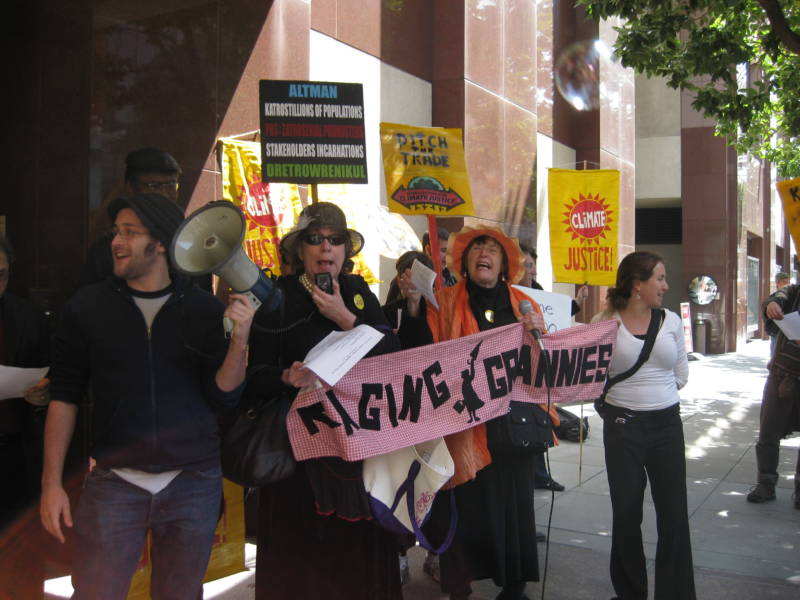
Businesses wary of a cap-and-trade system for carbon regulation are finding some unlikely allies these days. Outside a carbon policy conference in San Francisco today, the concept was assailed by members of the “environmental justice” movement.
About sixty protesters targeted an event called Navigating the American Carbon World, an event that brought together representatives from government and industry, including firms interested in facilitating emerging carbon markets.
“Inside there are thousands of people trying to make big money off-carbon trading,” said rally organizer Brianna Morgan of Rising Tide North America, as demonstrators outside sang songs, led chants, and performed political street theater. “We believe that carbon trading and carbon offsets let corporations off the hook from making real changes to the way they do business,” said Morgan.
Morgan and her fellow protesters were part of Mobilization for Climate Justice West, a network of 15 to 20 community-based groups.
Meanwhile conference attendees inside the Marriott hotel discussed climate change policy topics including carbon trading, a major component of the California climate law passed in 2006, known as AB 32.
The European Community is already using a carbon trading system, in which industrial emitters are allocated “carbon credits” corresponding to a specific quantity of global warming pollution. If facilities emit more CO2 than they have credits, they can buy additional credits in a regulated carbon market. But carbon markets have been slow to get off the ground elsewhere, including the US. California’s cap-and-trade system, scheduled to take effect in 2012, has encountered resistance from business groups and conservative candidates for Governor.
The San Francisco protesters said they object, in part, to carbon offsets, which allow emitters to meet regulatory requirements by funding activities elsewhere in the world, such as re-forestation, the exact impact of which on net carbon emissions may be elusive. Meanwhile, local emissions are allowed to continue.
“We believe that this is rewarding people for doing exactly what they always do,” Morgan said.
She added that carbon emissions coincide with other types of pollution that have public health consequences at home, such as increased rates of asthma near oil refineries and major ports.
